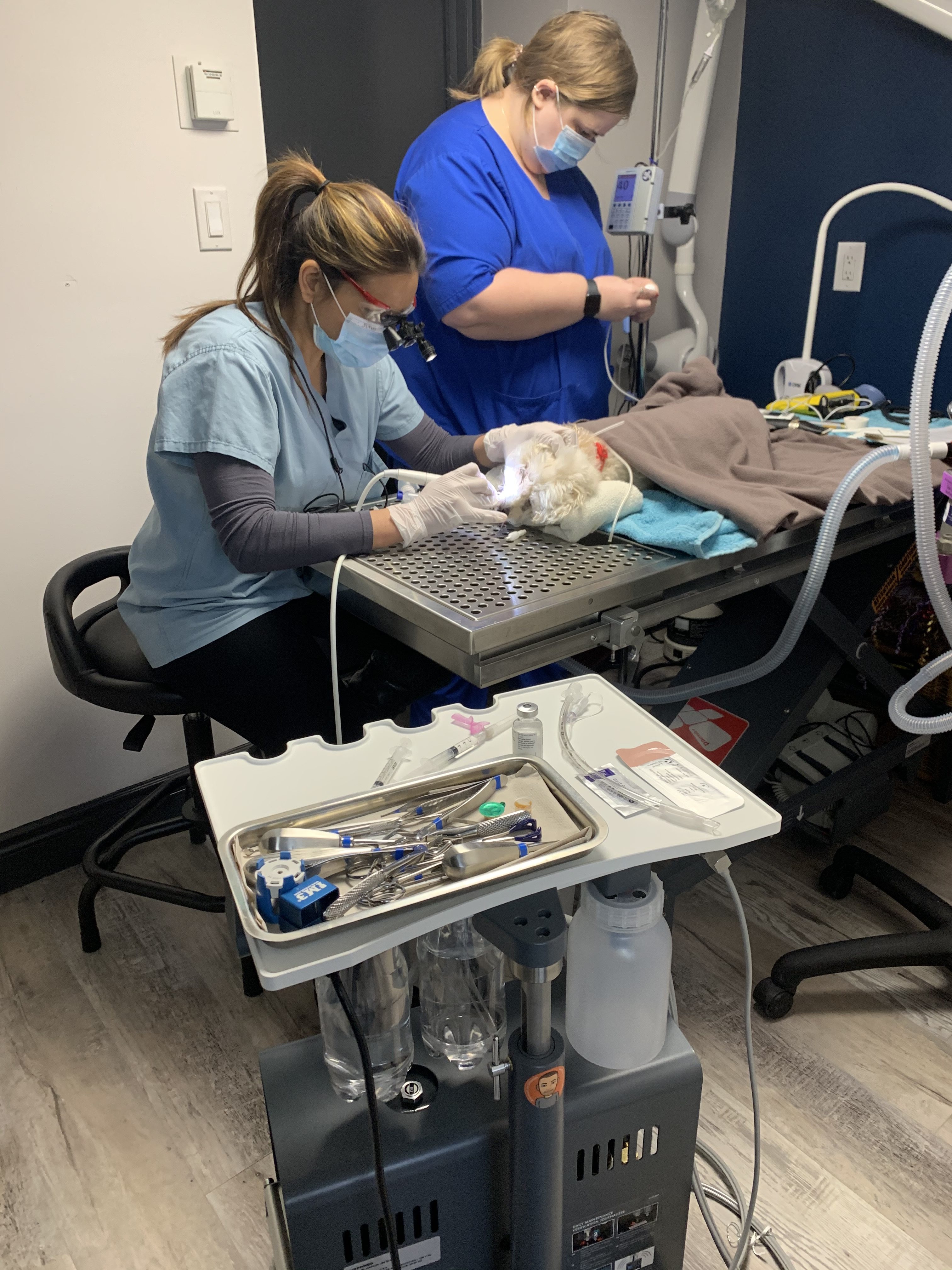DENTISTRY
Here at Balmy Beach Pet Hospital, we are proud to offer dental services for our patients. Dental disease is one of the most prevalent diseases affecting our pets and also the most overlooked. If left untreated periodontal disease results in harmful bacteria arising from the mouth and travelling throughout the body via the blood to important organs such as the heart, liver, and kidneys. Not to mention the pain, infection and suffering the pet endures from untreated dental disease.
It is important to note that teeth that look relatively healthy on physical exam can have advanced disease that we cannot see until we remove tartar and take radiographs. Approximately 80% of all dental disease is discovered only by taking radiographs. Once plaque hardens into tartar, the sooner we can clean the teeth, the better the chances are that those teeth will remain healthy. After the cleaning, daily brushing with a bristled toothbrush is the best proven way to minimize tartar buildup. Please ask one of our practitioners for a demonstration — we have a lot of tricks up our sleeve to help this become a routine for you and your pet.
Despite you regularly brushing and taking care of your teeth, you still visit the dentist. Very much the same, your pets should also come into have their teeth cleaned. Many animals will mask or hide their pain and will continue to eat just fine, but that doesn’t mean they don’t have dental disease. Regular oral examinations are very important to identify diseased teeth.
What should you expect when you have brought your pet in for a dental cleaning?
First, we will run pre-surgical blood work to ensure good health for undergoing anesthesia. This will check the function of the liver, kidneys, and immune system. This should be done within 30 days of the procedure. We offer a packaged cost for the dental cleaning, polishing, full-mouth radiographs, and associated anesthesia and monitoring.
All our dental patients are fitted with an IV catheter and receive IV fluids for cardiovascular support throughout the procedure. During the dental procedure, we monitor oxygenation levels, carbon dioxide output, EKG, and blood pressure. Each patient is monitored by a dedicated and trained veterinary personnel from the time they are anesthetized until they are fully recovered.
After we clean, polish, and radiograph all teeth, the doctor will examine and probe each tooth to determine if there is any underlying disease which may warrant extraction. This is decided by a combination of examination, probing and radiographic findings. If all teeth look healthy, the procedure will be finished.
If there are teeth that need to be extracted, there are three tiers of oral surgery (minor, moderate, and major). In cases of moderate to severe periodontal disease, the doctor would have already prepared you for surgical extractions of the diseased teeth. After the teeth have been extracted, we will take post-extraction radiographs in order to ensure complete removal of the tooth structure. Then the extraction sites are closed with the appropriate suture. Any sutures placed will be absorbable, though you will likely be instructed to feed a soft food diet for the next 10-14 days after the procedure to aid with healing.
Feel free to contact us today at (647) 983-2400 if you have any questions about dental health or the services we offer.

